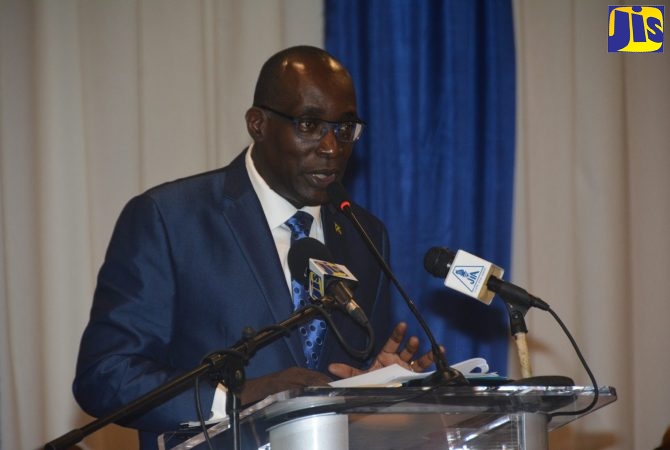JIS: Minister of Education, Youth and Information, Senator the Hon. Ruel Reid, says that all basic schools must become certified with the Early Childhood Commission (EEC).
This, he noted, is in keeping with the Government’s commitment to improve the quality of early-childhood education “giving our babies every opportunity to be properly nurtured and to have highly trained teachers at their disposal”.
“We are not knocking the basic schools and the wonderful persons who have played their part in keeping them going for all these years. What we are saying, though, is that in order to get government assistance, they have to become fully certified and meet all the basic requirements,” he told JIS News in a recent interview.
He said that the work has already begun, noting that at the end of 2017, more than 100 institutions had met the 12 operational standards of the ECC. Only 34 of the island’s 2,700 basic schools were certified up to 2015.
The 12 Standards for the Operation, Management and Administration of Early Childhood Institutions relate to nutrition; staffing; development and educational programmes; interactions and relationships with children; physical environment; indoor and outdoor equipment; health; safety; child rights, child protection and equality; parent and stakeholder participation; administration and finance.
“We will continue the work to ensure that more of our basic schools achieve the set standards,” Senator Reid assured.
The Education Minister, in the meantime, argued that as more Jamaicans develop an appreciation for children having a solid early-childhood foundation “the better our society” will be.
“We have to continue working together to help our young children in developing good study habits, moral values, self-discipline, and the basic learning skills… literacy, numeracy, and thinking skills,” he pointed out.
He noted that the Ministry “has been outlining a K-13 strategy, which emphasises the importance of early stimulation in the life of children and continuing on through the various stages of the formal education system”.
The policy for the birth to 18-year-old population is as follows: age three months to three plus years – early-intervention/stimulation, pre-education and development; age three years and eight months to five years – early childhood; age six to 12 years – primary education; and age 13 to 18 – seven years of secondary schooling.
Meanwhile, Senator Reid told JIS News that 17 basic schools will be converted into 56 infant departments, with nine of them to be transformed during this school year at a cost of $389.3 million.
“The ECC is currently assessing another 1,500 basic schools with a view to converting at least 50 per cent to infant schools and departments for the next financial year,” he noted.
CAPTION: Minister of Education, Youth and Information, Senator the Hon. Ruel Reid


